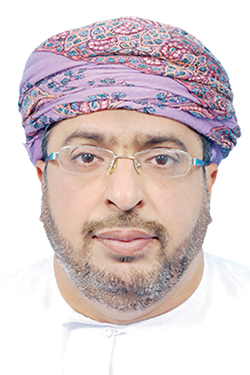

Haider al lawati -
haiderdawood@hotmail.com -
Financial disclosure for a government official is a way of declaring what he/she, their spouse and minor children own in cash, real estate or movable assets inside or outside the Sultanate. These include securities, bonds, shares in companies and bank accounts.
The issue of financial disclosure was raised in both conventional as well as social media across the region. This is normal in a world of corruption, money-laundering, dishonesty, bribery, financial irregularities and other forms of graft.
It is, therefore, necessary for many countries to enforce anti-corruption laws and financial disclosure. Kuwait is the only country in the GCC to enforce the financial disclosure law.
Each government official is required to disclose his/her wealth, whether in cash, property or other assets, inside and outside the workplace before assuming office.
Despite these efforts and laws, corruption manages to sink its teeth into the existing channels — especially in the Arab and Muslim countries.
Nonetheless, the existence of such laws and enforcing them creates a kind of deterrence and fear among those who intend to continue practising corruption, especially financial corruption.
The existence of a financial disclosure law in any country, no doubt, reflects on improvement of its status on the Global Corruption Perceptions Index.
It reduces crimes of corruption and illegal income, and educates the younger generations and future employees on need to combat all forms of corruption and bribery, perform their jobs with integrity and increase productivity.
This will help create a “clean environment” free of manipulation, fraud and corruption in daily transactions, which will reflect on citizens’ lives and bring in more development.
The end result is bringing up a generation capable of rejecting all forms of corruption.
Efforts exerted in this regard are aimed at eradicating corruption in government institutions such as ministries, authorities, councils or public companies as well as private institutions dealing with government agencies, which require the need to report and monitor cases of corruption practised by some.
Such measures will help detect corruption and protect public funds from being wasted, which requires continuous enhancement of inspection and investigation.
Financial crimes are not limited to bribery. There are many operations transactions within the framework of financial corruption.
Whenever there is a follow-up on the fight against corruption, it confirms the seriousness of the government in this direction.
Combating corruption requires the development of a national strategy aimed at eliminating all forms of corruption and improving the status of the country to take a leading position on the Global Corruption Perceptions Index as well as eliminating all challenges faced by citizens in finalising their daily transactions in government institutions without prejudice and with complete impartiality and objectivity.
Through an existing strategy, more cases of corruption can be detected, transparency and integrity are promoted and prosecution of fraudsters by the judiciary system can be carried out.
Disclosure can be achieved through random inspection of officials’ balance sheets and bank accounts, along with obtaining witness testimonies, following up on results of investigations and statements required by authorities and tracking the finances of those accused of corruption.
Since such acts are carried out with utmost secrecy, names of culprits charged with treason and corruption should be announced in the media, with the aim of recovering public funds from them later through all available means.
Oman Observer is now on the WhatsApp channel. Click here



